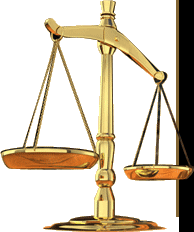Entrapment
While the courts have generally held the Justice Department can use trickery and/or deception orchestrating FBI undercover operations, these investigations are typically fraught with serious problems. Because FBI undercover operations involve complicated scenarios—requiring advanced planning and special funding—the Justice Department mandates these investigations undergo a rigorous review process. And because undercover operations invariably involve the use of a Confidential Informant, Cooperating Witness, and/or Government agent acting in an undercover capacity, entrapment and other legal defenses—including outrageous government conduct—are valid defenses lawyers will argue in an effort to defend a client.
But as one 56-year-old Nebraska farmer discovered with no criminal record—once charged with a felony like child pornography—legal defenses including outrageous government conduct and/or entrapment are not arguments easily won despite evidence suggesting the defendant was “induced” to purchase the pornography using unsolicited mail solicitations. But not dissuaded by the lower courts, the Nebraska farmer persisted with his appeal and in a slim 5-4 majority, the Supreme Court finally agreed with his claim of entrapment and reversed his conviction [see Jacobson v. United States, 112 Supreme Court 1535 and 1540 (1992)].
 Reviewing the High Court’s decision, experts state the Nine Justices followed a traditional entrapment analysis focusing on two basic questions. Namely—did the Government induce the defendant to commit the crime? And second—assuming the Government improperly induced the defendant to commit the crime—was the defendant nevertheless predisposed to commit the crime? Because the Government did not dispute inducement, the sole issue before the Court concerned whether the defendant was “predisposed” to commit the offense—ordering the illegal pornography before the Government intervened. Based on the Court’s review, the Justices concluded the Government “failed” to prove the defendant was predisposed to commit the crime and reversed his conviction.
Reviewing the High Court’s decision, experts state the Nine Justices followed a traditional entrapment analysis focusing on two basic questions. Namely—did the Government induce the defendant to commit the crime? And second—assuming the Government improperly induced the defendant to commit the crime—was the defendant nevertheless predisposed to commit the crime? Because the Government did not dispute inducement, the sole issue before the Court concerned whether the defendant was “predisposed” to commit the offense—ordering the illegal pornography before the Government intervened. Based on the Court’s review, the Justices concluded the Government “failed” to prove the defendant was predisposed to commit the crime and reversed his conviction.
In order to be successful with an entrapment defense, experts explain a defendant must show inducement before the burden of proof shifts to the Government. If the defendant can establish the Government induced the crime, courts require the Government must prove predisposition. In the event a defendant cannot establish/prove inducement—an entrapment defense will fail. While most courts consider inducement and predisposition closely related noting the same evidence can be used to establish both elements, in general, inducement concerns the Government’s conduct while predisposition describes the defendant’s actions and statements.
[NOTE: Information contained herein was summarized from an article written by Thomas V. Kukura titled, “Undercover Investigations and the Entrapment Defense,” that appeared in the April 1993 FBI Bulletin].

